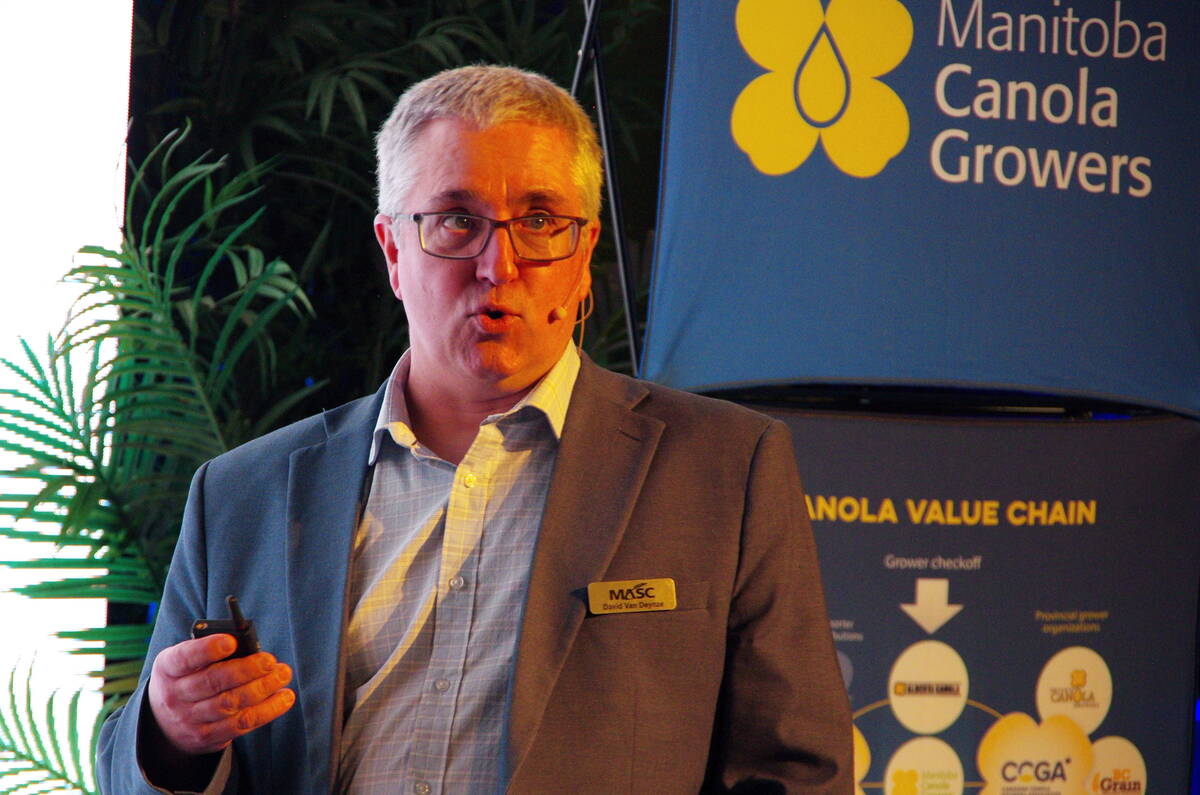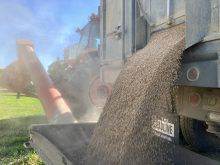Getting your message across about agriculture isn’t about spewing out data — it’s about connecting with people, a Winnipeg seminar organized by the Manitoba Canola Growers Association was told.
“We in agriculture have a tendency to always use science, and to always use data, we puke data on people’s shoes frankly, and we wonder why they run away,” said Michele Payn-Knoper, a self-described agricultural advocate and founder of Cause Matters Corp. “I am not against science… but I know that if we lead with science, and we position it from an educational standpoint, we lose.”
Read Also

MANITOBA AG DAYS: Does farm size affect crop insurance risk?
Crop insurance data highlights traits of Manitoba farms that file the fewest claims, part of the lineup at Manitoba Ag Days 2026 in Brandon.
The session was aimed at finding ways to open dialogues between producers and consumers.
She said not getting defensive when asked about chemical or biotechnology is key for forming personal connections, which raises the odds that the producers’ message will be heard.
But agricultural advocacy isn’t about the “warm fuzzies” according to the speaker’s online promotional material, “it’s about protecting our bottom line.”
Participants in the seminar said modern agriculture is victim of a backlash based on consumer misinformation and spread by social media.
“Our consumers, our customers, their choices are important and it’s a free country, so if a certain choice makes a shopper feel good, while God bless them, but let us please at least stick to the facts,” said Ed Rempel, president of the Manitoba Canola Growers Association. “If the customer genuinely fears something, and wants to avoid something, then it’s our job to provide that customer with the facts and when they’re armed with the facts, then they can make an informed decision, at least don’t wander around in ignorance.”
From the Alberta Farmer Express website: Anger and advocacy don’t mix
Farmer focus
Cami Ryan, who joined Payn-Knoper for the seminar and is affiliated with the University of Saskatchewan’s College of Agriculture and Bioresources, said many of the new technologies causing concern today were developed with the farmer in mind, leaving consumers out of the information loop.
“Now there are gaps, and people fill in those gaps, so if you’re not proactively filing in information gaps, someone else will do it,” she said.
Ryan doesn’t want to shut any voices out of the debate when it comes to biotechnology.
“I don’t think it should be about us going and changing people’s minds, what it should be about… is to make sure that if you are interested I can give you the right information, the correct, the accurate information,” she said. “Now what’s done with that information is entirely up to them, because I believe in the whole consumer sovereignty.”
However, what the consumer wants and what a farmer can realistically produce may not always be compatible, Ryan said.
“So it becomes about rights versus rights, and that’s a very difficult space to navigate, and I’m not sure how we’re going to do it, but I don’t think it ever hurts to have that conversation to increase awareness and understanding,” she said. “How that actually translates out there, I don’t know.”
More voices
A variety of individuals attended the event, including farmers, bloggers, educators, dietitians and representatives of biotechnology companies like Monsanto, Rempel noted, adding the more voices communicating a message the better.
One of those in attendance was Lindsey Mazur, a home economist and registered dietitian, who said she has seen a “mass confusion” among her clients when it comes to making food decisions.
“So I want to help people sort through that confusion and make choices that are right for them,” she said, adding the session has inspired her to continue to pursue open dialogues with people about why they make the food choices they do.
“I want food to be an important but not overwhelming part of people’s lives,” Mazur said.
So far, Rempel said Manitoba’s canola industry hasn’t been financially affected by concerns over biotechnology, but he wants it to stay that way.
“There’s been no effect yet, but we in the Manitoba Canola Growers Association are now having the conversation — how do we get in front of this?” he said.

















